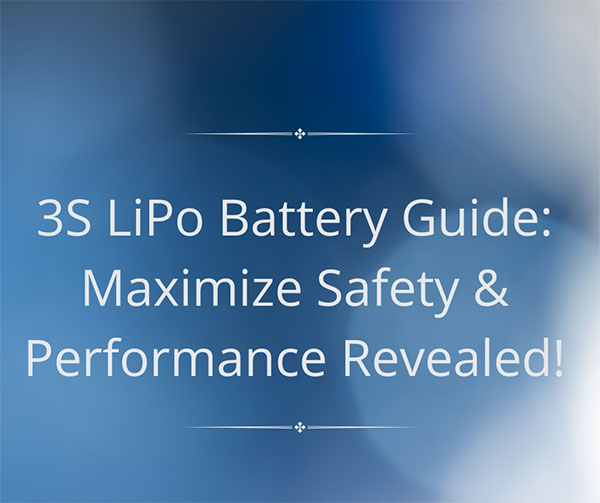
Solar Battery
Unlocking the Potential of VRLA Sealed Deep Cycle Lead Acid Batteries for Solar Applications
Solar power storage and backup have become crucial elements in harnessing renewable energy efficiently. Among the various components involved in these systems, the choice of battery technology plays a pivotal role. One such technology that has stood the test of time is the VRLA Sealed Deep Cycle Lead Acid Battery.
Understanding VRLA Sealed Deep Cycle Lead Acid Batteries
The VRLA Sealed Deep Cycle Lead Acid Battery is a stalwart in the realm of rechargeable batteries. Despite its relatively low energy-to-weight and energy-to-volume ratios, its capability to deliver high surge currents sets it apart. This unique feature contributes to a significant power-to-weight ratio, making it a preferred choice in solar applications.
Dominating the Solar Market
The affordability factor coupled with its ability to supply high surge currents has ensured the continued dominance of lead acid batteries in the solar market. Even in scenarios where surge current is not a critical factor, the cost-effectiveness of lead acid batteries keeps them in favor.
Applications Beyond Solar
Lead acid batteries find extensive use beyond solar applications. In settings where uninterrupted power supply is essential, such as cell phone towers and hospitals, large-format lead acid designs serve as reliable backup power sources. These batteries are also integral components of stand-alone power systems.
Specialized Variants for Enhanced Performance
To cater to specific requirements, modified versions of standard lead acid cells are utilized. Gel-cells (GEL) and absorbed glass-mat (AGM) batteries, collectively known as VRLA batteries, offer improved storage times and reduced maintenance needs. These specialized variants are commonly employed in critical applications, ensuring uninterrupted power supply when it's needed most.
Final Thoughts
Despite the emergence of newer battery technologies, the VRLA Sealed Deep Cycle Lead Acid Battery continues to hold its ground in solar applications and beyond. Its reliability, cost-effectiveness, and ability to deliver high surge currents make it an indispensable component of various power systems. As we strive towards a sustainable future, leveraging the potential of such established technologies remains imperative.
Maximizing Performance and Safety: A Comprehensive Guide to 3S LiPo Batteries
- By 大卫
Ultimate Guide to LiPo Battery Safety Precautions
- By 大卫
5 LiPo Battery Types for Extreme Performance: Power Up Your Devices
- By 大卫

Advantages of Solar Batteries
Harnessing Solar Power Around the Clock
Breaking Free from Grid Dependency
Traditional energy sources rely heavily on the power grid for electricity supply, leaving consumers vulnerable to outages and price fluctuations. By integrating solar batteries into their systems, individuals and businesses can achieve energy independence, reducing their reliance on grid power and enhancing resilience against disruptions.
Maximizing Energy Efficiency
Solar batteries enable users to optimize their energy consumption by storing surplus electricity for later use, thereby minimizing waste and maximizing efficiency. This not only reduces utility bills but also promotes sustainable energy practices, contributing to a greener and more eco-conscious future.
Environmental Benefits of Solar Batteries
Mitigating Carbon Footprint
The adoption of solar batteries facilitates the transition towards clean energy solutions, significantly reducing carbon emissions associated with fossil fuel consumption. By harnessing the power of the sun, individuals and communities can diminish their environmental impact and contribute to mitigating climate change on a global scale.
Preserving Natural Resources
Unlike conventional energy sources that rely on finite resources such as coal and oil, solar batteries rely on abundant sunlight, a renewable and inexhaustible energy source. By embracing solar technology, we can preserve precious natural resources for future generations while simultaneously reducing our dependence on non-renewable fuels.
FAQ of Solar Battery
What is a Solar Battery?
A solar battery, also known as a solar storage battery or solar energy storage system, is a device that stores electricity generated by solar panels for later use. It works by storing excess energy produced during sunny periods so that it can be utilized when sunlight is not available, such as during nighttime or cloudy days. Essentially, it allows homeowners and businesses to maximize their use of solar energy by providing a reliable source of power even when the sun isn’t shining.
– Solar batteries store electricity generated by solar panels.
– They provide energy during periods of low sunlight.
– They enable users to maximize their use of solar energy.
How Does a Solar Battery Work?
A solar battery works by converting and storing the direct current (DC) electricity generated by solar panels into chemical energy, which is then converted back into electricity when needed. When sunlight hits the solar panels, they generate DC electricity, which is fed into the solar battery for storage. The battery contains cells that store this energy in the form of chemical reactions. When electricity is required, such as during the night or when demand exceeds solar production, the stored energy is converted back into usable electricity through an inverter.
– Solar batteries convert and store DC electricity.
– They utilize chemical reactions for energy storage.
– Stored energy is converted back into electricity through an inverter when needed.
What are the Benefits of Using a Solar Battery?
Using a solar battery offers numerous benefits for both residential and commercial users. Firstly, it enables greater energy independence by reducing reliance on the grid, thereby potentially lowering electricity bills and providing backup power during outages. Additionally, solar batteries contribute to environmental sustainability by storing clean, renewable energy and reducing greenhouse gas emissions associated with traditional energy sources. Furthermore, they can enhance the value of a property by increasing its energy efficiency and attractiveness to environmentally-conscious buyers.
– Increased energy independence and potential cost savings.
– Environmental sustainability through the use of clean energy.
– Enhanced property value and appeal to eco-conscious buyers.
What Factors Should I Consider When Choosing a Solar Battery?
When selecting a solar battery, several factors should be taken into account to ensure it meets your specific needs and requirements. Firstly, consider the capacity of the battery, which determines how much energy it can store and discharge. This should be matched to your energy consumption patterns and backup power needs. Additionally, evaluate the battery’s efficiency, as higher efficiency batteries will maximize the amount of energy stored and minimize losses during charging and discharging. Other important factors include the battery’s lifespan, warranty, compatibility with your existing solar system, and any additional features or smart capabilities it may offer.
– Capacity matching energy consumption and backup power needs.
– Efficiency to maximize energy storage and minimize losses.
– Considerations of lifespan, warranty, compatibility, and additional features.
How Long Do Solar Batteries Last?
The lifespan of a solar battery can vary depending on several factors, including the type of battery chemistry, usage patterns, and maintenance. Generally, lithium-ion batteries, which are commonly used in solar energy storage systems, have a lifespan of around 10 to 15 years. However, proper maintenance and usage can extend this lifespan, while factors such as depth of discharge and temperature can also impact longevity. It’s essential to consult with a reputable solar provider to determine the most suitable battery for your specific needs and to ensure proper installation and maintenance for optimal performance and longevity.
– Lifespan typically ranges from 10 to 15 years.
– Proper maintenance and usage can extend battery life.
– Consultation with a reputable provider is essential for optimal performance.







